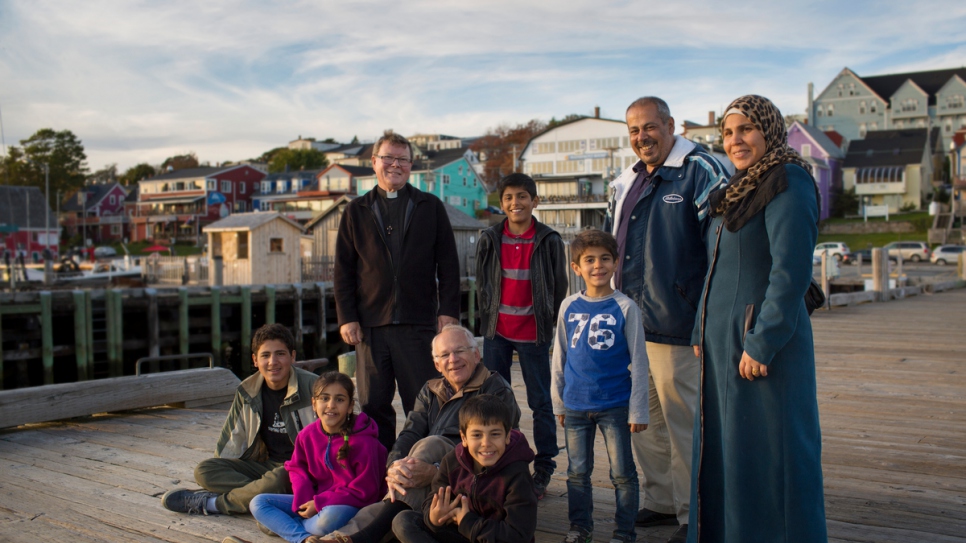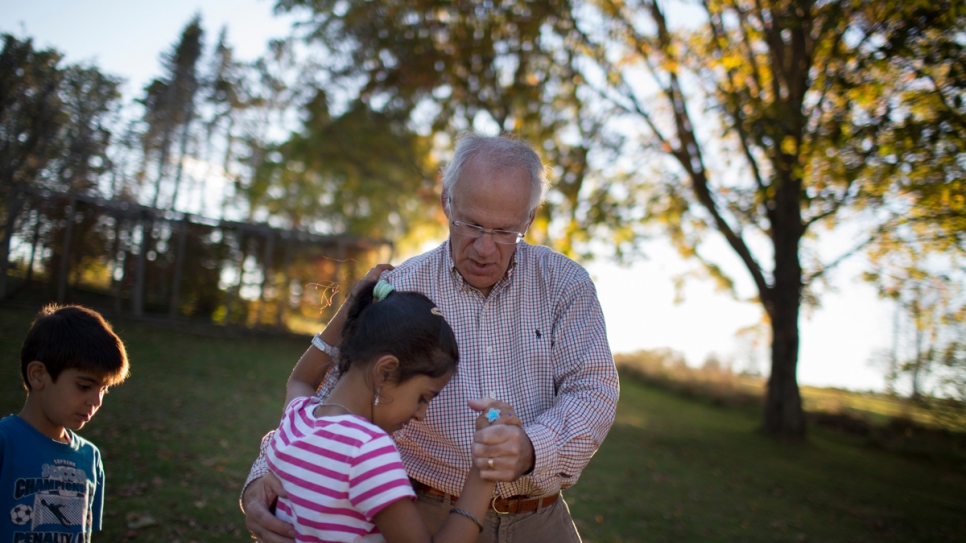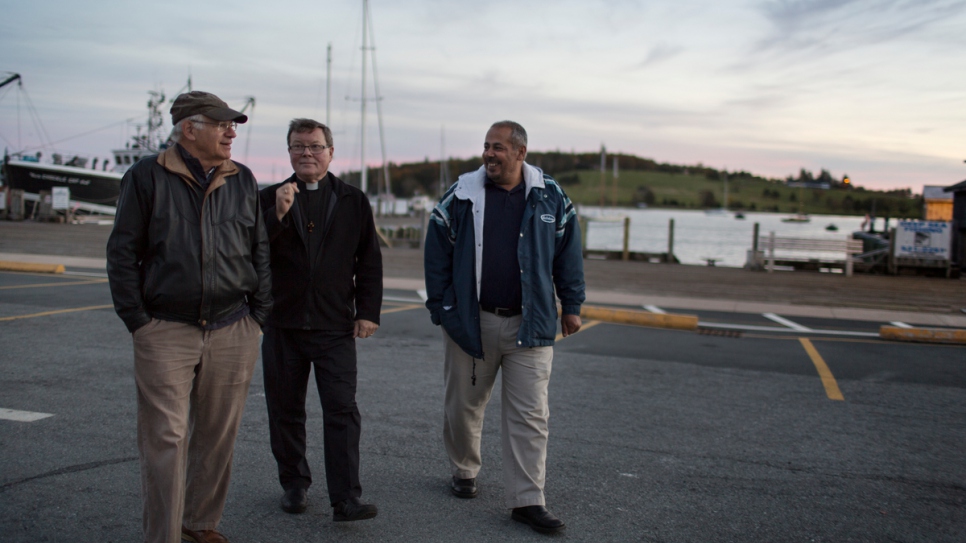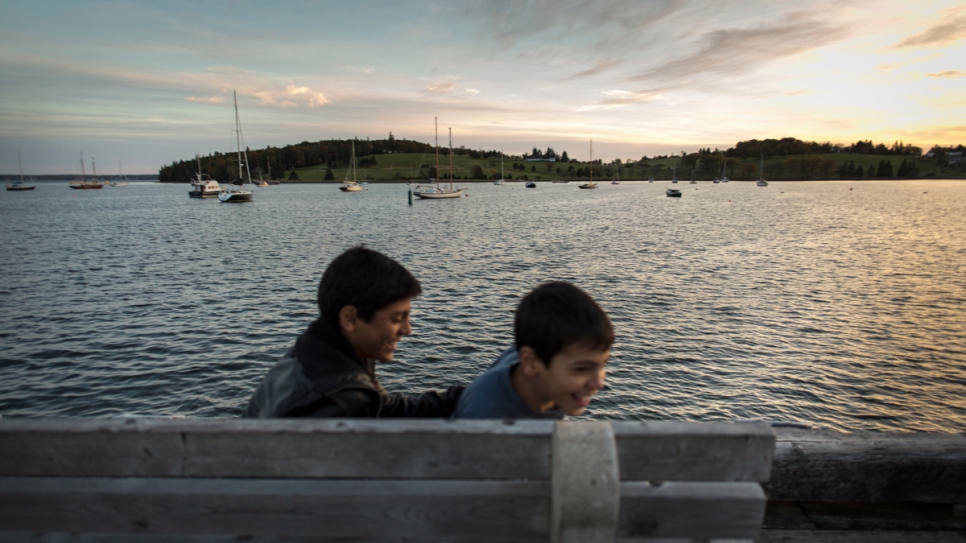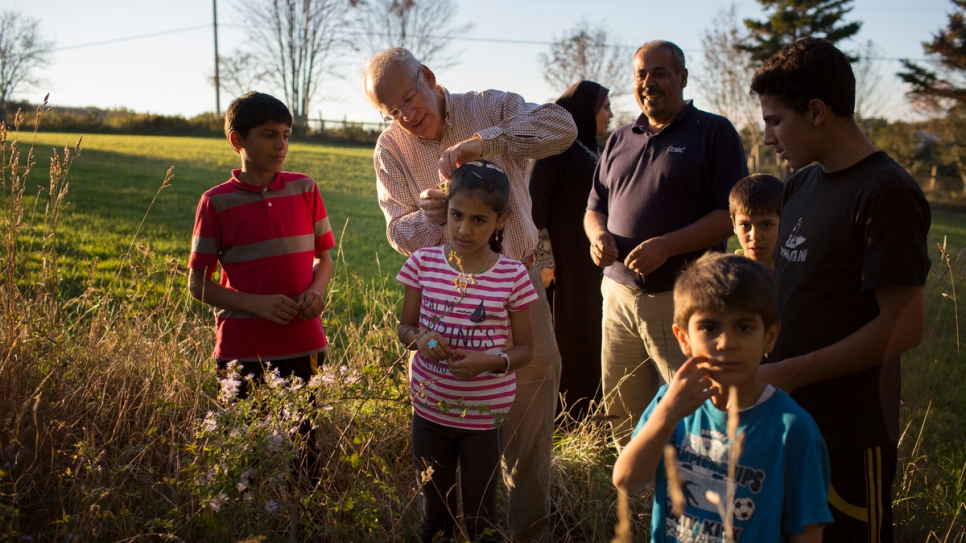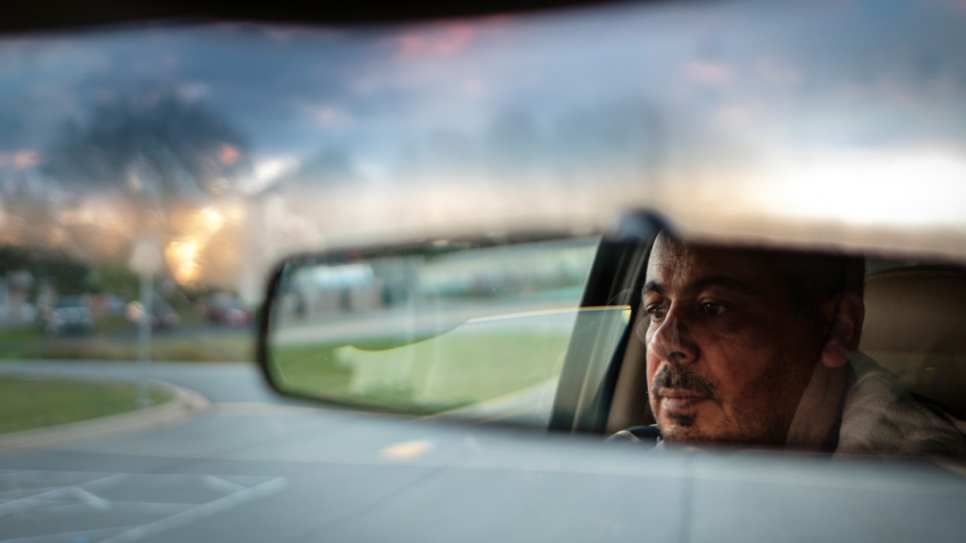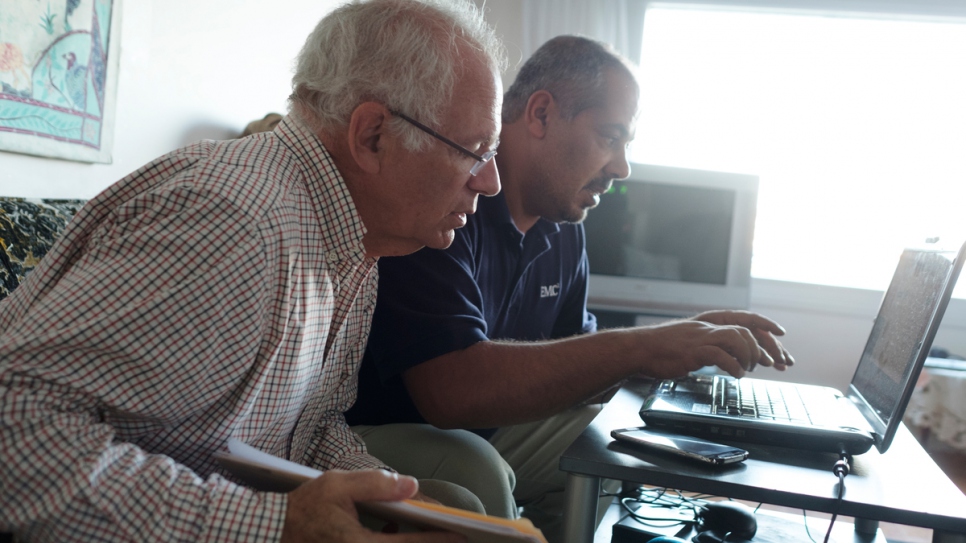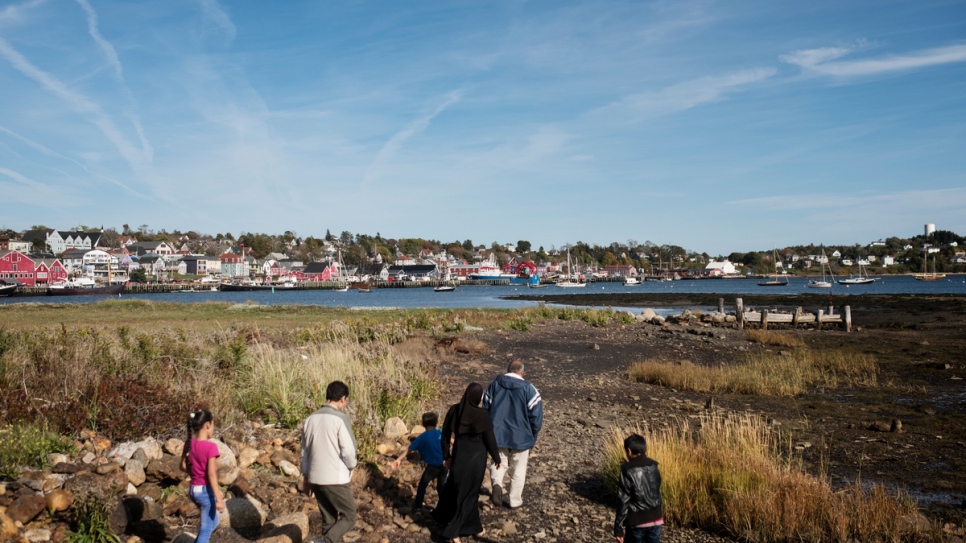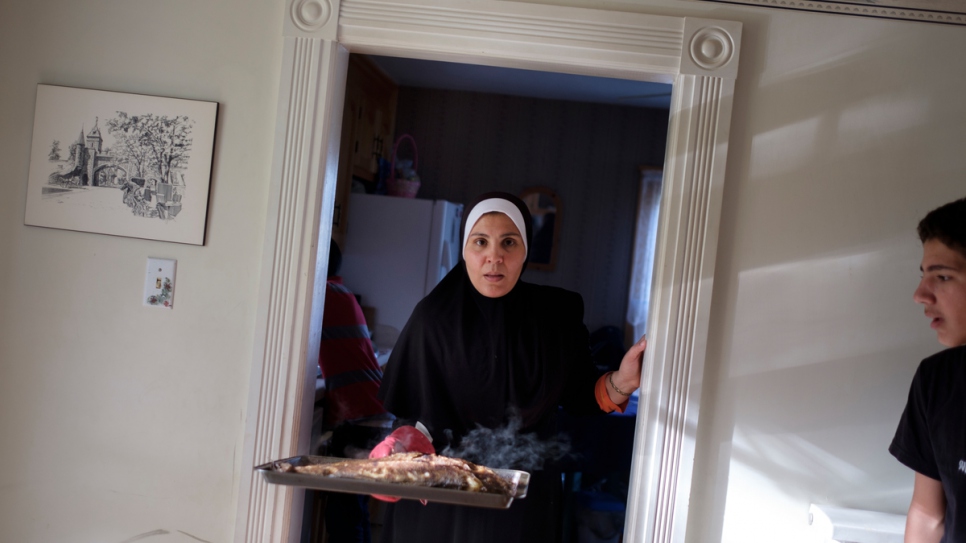Syrian family find safe harbour on the shores of Canada
In the port town of Lunenburg, generous locals have come together to welcome a Syrian family with open arms.
The Ayash children play near the water, meters from their new home in Lunenburg.
© UNHCR/Annie Sakkab
Each morning, under the blanket of a grey dawn sky, Ahmad Ayash drives to work, passing rows of houses to his left and the calm harbour to his right. A gentle peace fills the air. Here in the port town of Lunenburg, Canada, there are no bombs or bullets to shatter it.
As far back as Ahmad can remember, at least to his great-grandfather, the Ayash family lived and worked in Dara’a, Syria. But months after he opened an engineering office in the city, the stability of the life he shared with his wife, Fatmeh, and their children suddenly disappeared. Staccato bursts of gunfire, marking the beginning of Syria’s protracted conflict which has uprooted more than 11 million residents, woke the five young children at night.
The parents made the decision to flee Dara’a as quickly as possible, crossing the border into Jordan. What they could not pack was left behind, along with friends, family and a sense of belonging.
“When you decide to leave, it’s very difficult,” says Ahmad. “But you have no choice.”
“When you decide to leave, it’s very difficult."
On February 28 2016, the Ayash family were resettled to Lunenburg, Nova Scotia – the first refugees welcomed into this small community of 2,500 people. It is a town where fishermen can trace their ancestry back generations and which, unbeknownst to Ahmad, has also shouldered its own losses.
In front of the docked scallop trawlers and fishing boats, pillars of black granite fan out in the shape of a compass rose – a memorial to the hundreds of fishermen who have never returned to shore.
“People here learn to live with death early on,” says David Friendly, a resident of Lunenburg and chairman of the Ayash family’s private sponsorship committee.
But despite the town's tragic history, its rocky shores have now become a beacon for refugees fleeing war and persecution in Europe.
It began when Father Michael Mitchell, archdeacon of the town’s Anglican church, saw images of exodus and loss from Syria and spoke about it to his congregation. The broader community then took interest, forming a coalition of churches and community groups with the goal of sponsoring a family.
When the Ayash family finally arrived, David quickly became close friends with Ahmad and remembers feeling an instant connection.
“I don’t know what it was, I couldn't really put my finger on it,” says David. “But I sort of felt this connection.”
David helped Ahmad find work shortly after the family arrived. The pair knew in advance that Canada would not recognize Ahmad’s more than 20 years of experience as an engineer, limiting the scope of his job hunt. But a local company manufacturing aerospace materials offered work to Ahmad.
“The job is an important thing to me,” says Ahmad. “You have to find a job to ensure a good life for your kids.”
“You have to find a job to ensure a good life for your kids.”
The income means his family can be self sufficient – a large victory, given the barriers many refugees face finding long-term employment.
And for David, who does not have grandchildren of his own, this friendship has taken on a special meaning.
“It's very selfish of me, but I love it when [the kids] can think of me that way,” he says.
.png)
It has not all been plain sailing – there are challenges involved in relocating to a small town. The closest source of halal meat is in Halifax, almost 100 kilometres away and it only comes frozen. But with no religious restrictions on fish, David found a fisherman willing to sell whole haddock to the family. Fatmeh now prepares stuffed haddock with vegetables and spices – Middle East meets maritime.
And Lunenburg is not alone in its tireless efforts to help those who have been forced from home. Between November 2015 and February 2016, more than 25,000 Syrian refugees were resettled across Canada.
Living more than 8,000 kilometres away from familiarity, Ahmad admits there are times when he and Fatmeh feel lonely.
“Sometimes, when you sit at home, your memories take you to the past. You think about your friends. Your land. Your home,” he says. “But then you go out and see people and talk with them. And you are not alone.”
From Far and Wide is a series of stories profiling the Canadians who have welcomed Syrian refugees with compassion and support. All across the country, strangers, friends, families and communities are creating powerful bonds of friendship that transcend language and culture, when they are needed the most.


